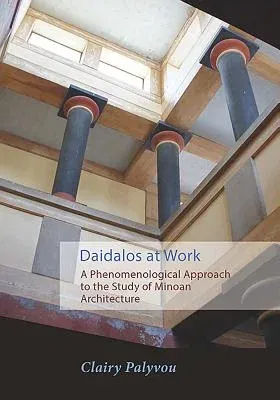This is primarily a book on architecture, and as such it seeks to bring
forward the deeper forces that guide the work of all the sons and all
the daughters of Daidalos. Architecture is the protagonist, whereas the
prehistoric time of this architecture is as important as any other
historical time. This book is firmly based on the realities of a
long-silenced world available to us today through the agency of
archaeology. In that sense, it addresses archaeologists, architectural
historians, and architects alike, in the hope that it will prove useful
to those interested in understanding the Minoan world through its
architecture as much as those interested in exploring architecture
through the Minoan paradigm. This dual goal emanates from my deep belief
in the timeless and universal values of architecture. As a teacher of
(history of) architecture, the challenge has been to bring history into
the studios where future architecture is formulated, to engage history
in the discourse on current architectural ethos and practices, and to
show that an analytical and critical approach to the past is a potent
tool for advancing architectural awareness and educating future
architects. I am equally confident that such an approach will return its
benefits back to history, for it will provide new tools of thought and
methods of interpretation of the relics of the past. Having set the
scope of this book, it is only fair to add what is not included in its
goals: the reader will not find a descriptive account of Minoan
buildings and sites nor a list of the major architectural achievements
in chronological order. This is due not only to the enormous amount of
relevant information that has been accumulated to date, but also to an
altogether different interest in the subject, as described above. Time,
however, is crucial: "We have a mental need to grasp that we are rooted
in the continuity of time, and in the man-made world it is the task of
architecture to facilitate this experience" (Pallasmaa 2005b, 32).
Time-related issues, therefore, such as permanence and change or
tradition and innovation, will concern us.

